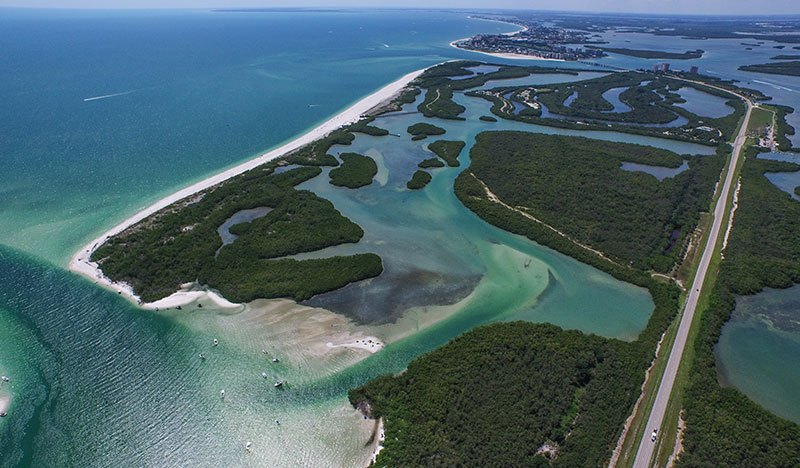
Red Tide impacts Southwest Florida
The severe red tide and algal blooms in Southwest Florida raise questions about potential health risks for residents and seasonal visitors.
To help reduce your risk of exposure to harmful algae and red tide, here is some helpful information from Dr. Mary Beth Saunders, Lee Health’s medical director for Epidemiology and Infection Control.
Red Tide: People exposed to red tide may experience varying degrees of eye, nose, and throat irritation. The symptoms are usually temporary and go away when a person leaves the area with red tide.
Blue-Green Algae: Most blue-green algae are not harmful to humans, but some types release toxins that can, on rare occasion, affect your liver, nervous system, and skin. Drinking water with algal toxins may cause abdominal cramps, nausea, diarrhea, and vomiting. Direct contact with high levels of algal toxins could irritate the skin, eyes, nose, and throat. Remember: It is not possible to tell if a bloom is harmful just by looking at it..
Tips to avoid red tide and algae bloom risks:
-
Avoid coming in contact with red tide or a blue-green algae bloom. This includes swimming and jet-skiing.
-
Wash immediately and thoroughly with clean water and soap if you come in contact with contaminated water.
-
Don’t swim in water if dead fish are on the shore.
-
Over-the-counter antihistamines decrease symptoms associated with red tide.
-
People with chronic respiratory problems such as asthma should avoid areas with active red tides or severe algae blooms.
-
Can’t avoid an area with red tide? Wear a particle filter mask to lessen the effects.
-
Don’t eat shellfish such as clams and oysters that are harvested from areas with active red tide.
-
Residents of beach areas affected by blooms should close windows and run their air conditioner.
-
Anyone who feels sick from exposure to red tide or algae or has persistent symptoms should call their primary care doctor. They can also visit one of our Convenient Care walk-in clinics.
-
Boiling water does not remove or destroy algal toxins.
-
Children should not play along the shoreline where they might be exposed to clumps of algae or red tide water.
-
Attention pet owners! Red tide and algae blooms pose the same risks to animals. Pets should not drink affected water and should avoid beach areas with red tide.
If you would to contribute to Healthy News, please contact us at Social@LeeHealth.org

